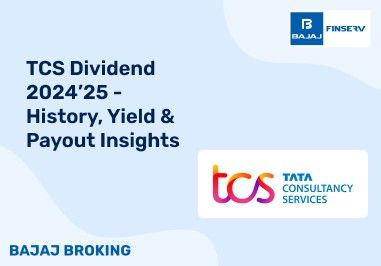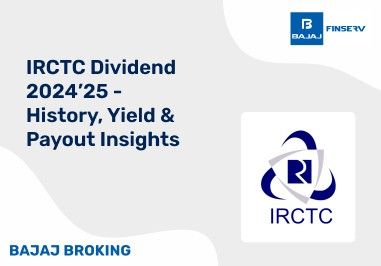BAJAJ BROKING
Tankup Engineers IPO is Open!
Open a Free Demat Account
Trade Now, Pay Later with up to 4x
Track Market Movers Instantly
The Impact of Digitalization on Demat Accounts: Pros and Cons
Demat accounts are electronic accounts that store securities such as shares, bonds, mutual funds, etc. in a digital format. They have replaced the traditional paper-based system of holding and transferring securities, which was prone to many risks and inefficiencies. Demat accounts have been made mandatory for investors who want to trade in the Indian stock market since 1996.
Digitalization has brought many benefits to demat account holders, such as faster settlements, reduced errors, easy liquidity, elimination of odd lots, and a single repository for all assets. However, there are also some drawbacks of demat accounts, such as high costs, cyber threats, and technical glitches. In this blog post, we will explore the demat account pros and cons of digitalization on demat accounts in detail.
Pros of Digitalization on Demat Accounts
Faster settlements:
Before dematerialization, settlement of trade used to take 14 days due to the physical movement of paper shares from the seller to the registrar and transfer agent (RTA) to the buyer. But with demat accounts, the settlement cycle has reduced from 14 days to 2 working days, saving the investors’ time, effort and energy.
Reduced errors:
At the time of manual paperwork, physical and offline settlements were often prone to mistakes. Past instances of erroneous trading caused several investors and traders to lose large sums of money. With demat accounts, manual errors have been wiped out, as the transactions are done electronically and verified by the depository participants (DPs).
Easy liquidity:
With demat accounts, investors can easily facilitate asset liquidation. In the past, doing so was a cumbersome and challenging task when assets were held in their physical form. Today, investors can buy and sell securities and save them in their demat accounts, take a loan against their shares or mutual funds, among others, when they hold their financial assets in their dematerialized format.
Elimination of odd lots:
One of the most prominent advantages of holding a demat account is the elimination of the odd-lots issue. Previously, investors could only sell physical shares in lots. Today, if investors choose to buy and sell even a single share, they can do so with their demat accounts.
Single repository for all assets:
Demat accounts not only store stocks but can also hold all other financial securities in their dematerialized form, such as exchange-traded funds (ETFs), unit-linked insurance policies (ULIPs), bonds, debentures, sovereign gold bonds (SGBs) and more. Having all assets under one roof can allow investors to monitor and track their investments quickly. Besides, it is also helpful when filing income tax as investors can view all their assets in one place.
Cons of Digitalization on Demat Accounts
High costs:
Some investors view the expenses associated with their demat accounts as a disadvantage. These include account opening charges, annual maintenance charges, transaction charges, dematerialization charges, rematerialization charges, etc. These costs may vary depending on the DP and the type of service availed by the investor. Moreover, some DPs may charge hidden fees or impose minimum balance requirements, which may increase the burden on the investor.
Cyber threats:
As demat accounts are operated online, they are vulnerable to cyber-attacks such as hacking, phishing, malware, etc. These attacks may compromise the security and privacy of the investor's personal and financial data, and may result in unauthorised transactions, identity theft, or loss of funds. Therefore, investors need to be vigilant and follow the best practices of online security, such as using strong passwords, changing them frequently, avoiding public Wi-Fi, etc.
Technical glitches:
Another drawback of demat accounts is the possibility of technical glitches or system failures, which may hamper the smooth functioning of the online trading platforms. These glitches may occur due to various reasons, such as server overload, network congestion, software bugs, hardware malfunction, etc. These glitches may cause delays, errors, or interruptions in the trading process, and may affect the investor's performance and profitability.
Conclusion
Demat accounts have revolutionised the way investors trade and invest in the Indian stock market. They have made the process of holding and transferring securities convenient and hassle-free. They have also brought many advantages to the investors, such as faster settlements, reduced errors, easy liquidity, elimination of odd lots, and a single repository for all assets. However, demat accounts also have some disadvantages, such as high costs, cyber threats, and technical glitches. Therefore, investors need to weigh demat account pros and cons before opening and operating them, and choose the best DP that suits their needs and preferences.
Disclaimer: Investments in the securities market are subject to market risk, read all related documents carefully before investing. This content is for educational purposes only. Securities quoted are exemplary and not recommendatory.
For All Disclaimers Click Here: https://bit.ly/3Tcsfuc
Share this article:
Read More Blogs
Disclaimer :
The information on this website is provided on "AS IS" basis. Bajaj Broking (BFSL) does not warrant the accuracy of the information given herein, either expressly or impliedly, for any particular purpose and expressly disclaims any warranties of merchantability or suitability for any particular purpose. While BFSL strives to ensure accuracy, it does not guarantee the completeness, reliability, or timeliness of the information. Users are advised to independently verify details and stay updated with any changes.
The information provided on this website is for general informational purposes only and is subject to change without prior notice. BFSL shall not be responsible for any consequences arising from reliance on the information provided herein and shall not be held responsible for all or any actions that may subsequently result in any loss, damage and or liability. Interest rates, fees, and charges etc., are revised from time to time, for the latest details please refer to our Pricing page.
Neither the information, nor any opinion contained in this website constitutes a solicitation or offer by BFSL or its affiliates to buy or sell any securities, futures, options or other financial instruments or provide any investment advice or service.
BFSL is acting as distributor for non-broking products/ services such as IPO, Mutual Fund, Insurance, PMS, and NPS. These are not Exchange Traded Products. For more details on risk factors, terms and conditions please read the sales brochure carefully before investing.
Investments in the securities market are subject to market risk, read all related documents carefully before investing. This content is for educational purposes only. Securities quoted are exemplary and not recommendatory.
For more disclaimer, check here : https://www.bajajbroking.in/disclaimer
Our Secure Trading Platforms
Level up your stock market experience: Download the Bajaj Broking App for effortless investing and trading













